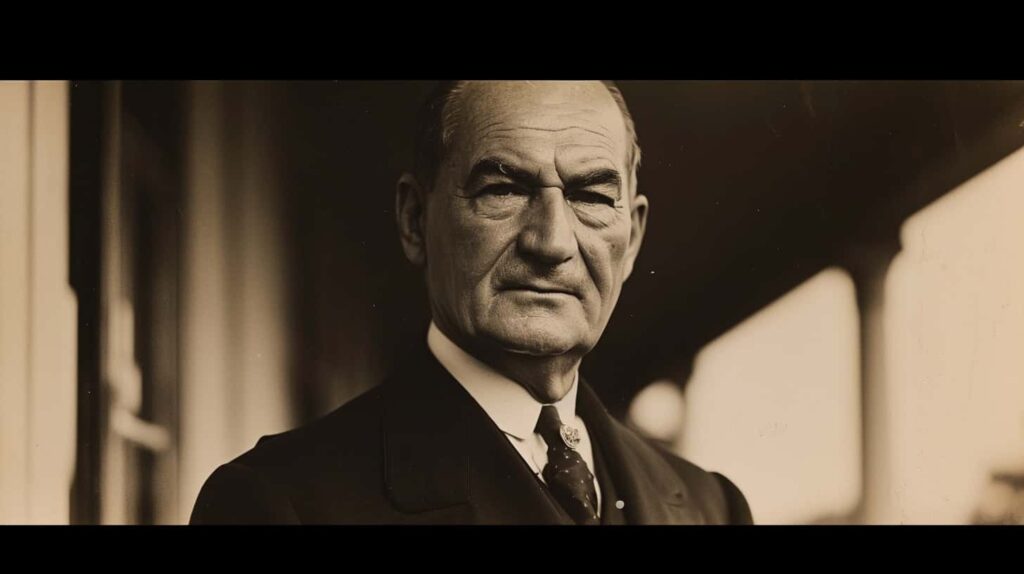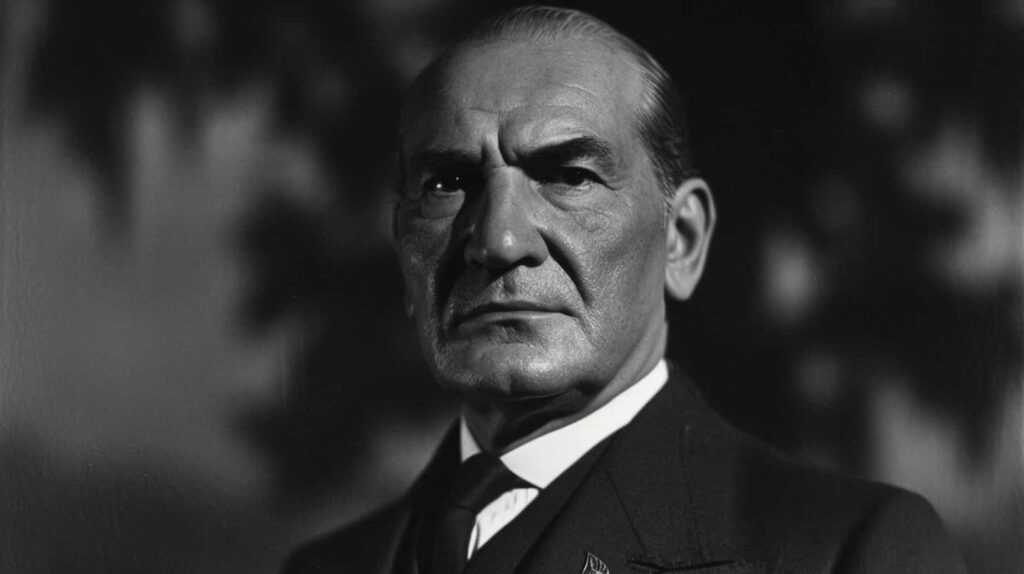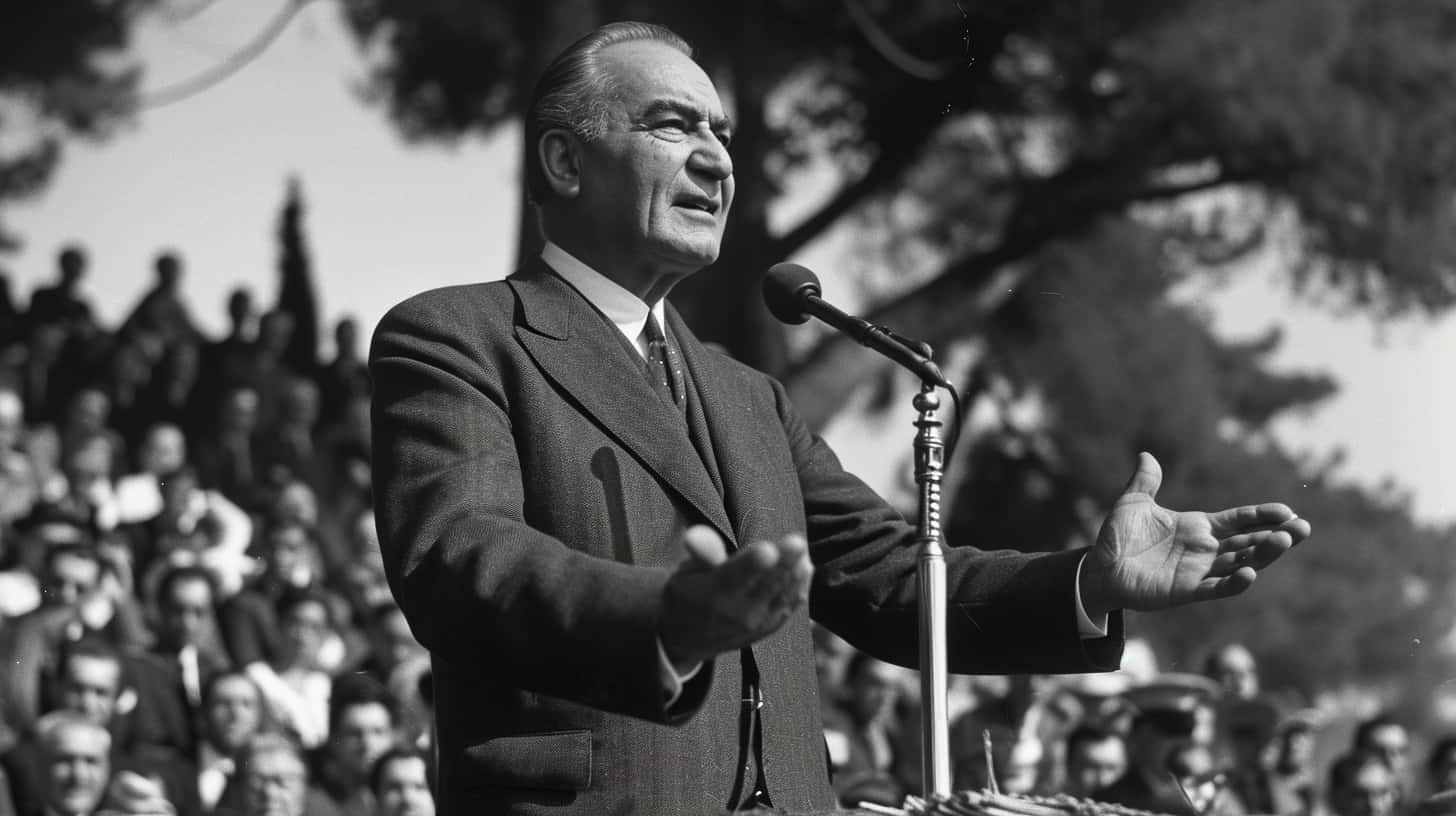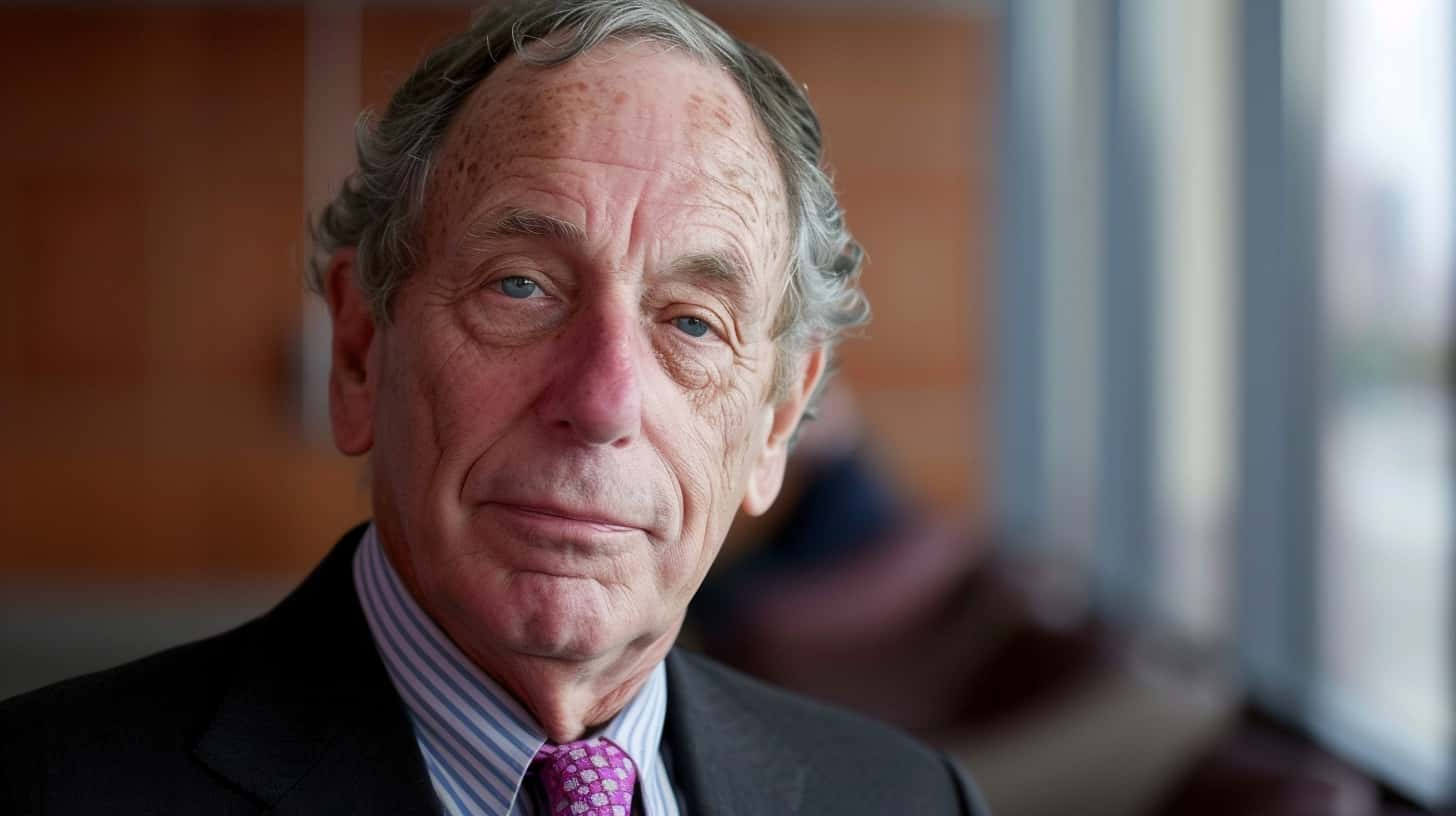Are you aware that Mustafa Kemal Ataturk, the inaugural President of Modern Turkey, bequeathed a legacy of profound quotations that still influence and mold the country up to the present moment?
As we delve into the remarkable life and achievements of Ataturk, we will explore his vision for a modern Turkey, his commitment to progress and change, and his unwavering dedication to national unity and pride.
Ataturk strongly believed in the power of education as the key to success and championed women’s rights and gender equality, pioneering significant reforms in these areas.
Additionally, he advocated for secularism and religious freedom, fostering an environment of tolerance and inclusivity.
Through his leadership and emphasis on empowering the youth, Ataturk’s legacy continues to have a profound impact on modern Turkey.
Key Takeaways
- Ataturk aimed to modernize and Westernize Turkey, promoting secularism and the separation of religion from the state.
- He implemented reforms to modernize education, the legal system, and the economy, and encouraged the adoption of Western culture.
- Ataturk championed gender equality and women’s rights, empowering women and ensuring their equal participation.
- He emphasized the importance of national unity, a strong national identity, and a harmonious society, laying the foundation for a prosperous and progressive Turkey.
Ataturk’s Vision for a Modern Turkey
Ataturk’s vision for a modern Turkey was characterized by a steadfast commitment to secularism, modernization, and Westernization. His goal was to embrace progress and transform society into a modern and prosperous nation. Ataturk believed that the key to achieving this was by breaking away from traditional and religious practices that hindered the country’s development.
One of the main aspects of Ataturk’s vision was the promotion of secularism. He wanted to separate religion from the state, ensuring that Turkey would be governed by principles of reason and rationality rather than religious dogma. This allowed for the establishment of a fair and inclusive society where individuals of all faiths could coexist peacefully.
Another crucial element of Ataturk’s vision was modernization. He recognized that Turkey needed to catch up with the advancements of the Western world in order to thrive. He implemented policies that aimed at modernizing education, the legal system, and the economy. This included the adoption of a Latin-based alphabet, the introduction of new laws based on European legal systems, and the promotion of industrialization.
Furthermore, Ataturk sought to Westernize Turkey, both in terms of culture and values. He believed that by embracing Western ideals, Turkey would become a more progressive and forward-thinking nation. As part of this process, he encouraged the adoption of Western clothing, music, and art, as well as promoting gender equality and women’s rights.
Embracing Change and Progress
When examining Ataturk’s quotes, it becomes evident that his vision for a modern Turkey was centered around embracing change and progress.
Ataturk recognized the need to transform Turkish society in order to keep up with the rapidly changing world. His quotes reflect his determination to modernize various aspects of Turkish society, from education to women’s rights, and to create a more progressive and forward-thinking nation.
Ataturk’s Vision for Transformation
With a clear vision for modernization and progress, Ataturk led Turkey towards a transformative era of change. His economic policies played a crucial role in shaping Turkey’s future. Ataturk implemented reforms aimed at promoting industrialization, modernizing agriculture, and establishing a strong financial system. These policies resulted in rapid economic growth and development, laying the foundation for Turkey’s emergence as a regional economic power.

Additionally, Ataturk recognized the importance of promoting cultural diversity in a modern society. He encouraged the preservation of Turkey’s rich historical heritage while also promoting the acceptance and integration of different cultures and religions. Ataturk believed that embracing diversity would foster unity and strengthen the nation’s identity.
His vision for transformation wasn’t only focused on economic progress but also on creating a society that values and celebrates its cultural diversity.
Modernizing Turkish Society
Turkish society underwent a process of modernization and embraced change and progress under Ataturk’s leadership. Ataturk recognized the importance of preserving Turkish cultural heritage while also promoting economic development for the country. He believed that in order to compete with the Western world, Turkey needed to embrace the values of modernity and progress.
Ataturk implemented a series of reforms that aimed to modernize Turkish society, including the adoption of a new legal system based on European models, the introduction of Western-style education, and the promotion of women’s rights. These reforms helped to modernize the country’s infrastructure, improve education and healthcare, and promote economic growth.
Ataturk’s vision for modernization laid the foundation for Turkey’s development into a more prosperous and progressive nation.
Inspiring National Unity and Pride
Ataturk’s inspiring leadership fostered a sense of national unity and pride among the people of modern Turkey. His vision for the country went beyond just modernizing Turkish society; he aimed to instill a strong national identity and patriotic fervor in the hearts of the Turkish people. Through his speeches, actions, and reforms, Ataturk successfully united the diverse population of Turkey under a common sense of purpose and belonging.
To fully understand the impact of Ataturk’s leadership on national unity and pride, let us examine a few quotes that highlight his unwavering commitment to these ideals:
| Quote | Meaning | Relevance to Topic |
|---|---|---|
| “Sovereignty belongs to the nation unconditionally.” | Emphasizes the importance of national identity | Reinforces the idea of a united Turkish nation |
| “The nation’s unity is the foundation of our state.” | Stresses the significance of national unity | Highlights the role of unity in building a strong state |
| “Peace at home, peace in the world.” | Advocates for a harmonious society and international peace | Encourages a sense of pride in Turkey’s peaceful nature |
These quotes illustrate Ataturk’s deep understanding of the importance of national unity and pride in shaping a strong and prosperous nation. He recognized that a country cannot thrive without a strong sense of identity and a united population. Ataturk’s inspiring leadership laid the foundation for the modern Turkish state, fostering a deep sense of national unity and pride that continues to shape the country today.
Education as the Key to Success
Education plays a crucial role in the success of individuals and societies.
Ataturk recognized the importance of education and implemented significant reforms to improve the educational system in Turkey.
These reforms aimed to transform Turkish society by providing equal educational opportunities for all, fostering critical thinking skills, and promoting modernization.
Importance of Education
In today’s rapidly changing world, it is undeniable that a solid educational foundation is the key to unlocking personal and societal success. Education plays a crucial role in shaping individuals and societies, providing them with the necessary skills, knowledge, and opportunities for growth. Lifelong learning is essential in the face of technological advancements and evolving job markets. It enables individuals to adapt, innovate, and remain competitive in a globalized economy. Moreover, education is closely linked to economic development. It equips individuals with the skills and knowledge needed to contribute to the workforce, fostering innovation, productivity, and economic growth. The table below highlights the importance of education in lifelong learning and economic development:
| Importance of Lifelong Learning | Role of Education in Economic Development |
|---|---|
| Enables adaptation and growth | Fosters innovation and productivity |
| Promotes personal development | Enhances human capital |
| Expands opportunities for success | Drives economic growth |
| Ensures competitiveness | Creates a skilled workforce |
Investing in education is not only an investment in individuals but also in the future of societies. It is essential for building a prosperous and sustainable world.
Ataturk’s Educational Reforms
Ataturk implemented transformative reforms in Turkey’s education system, paving the way for success and progress in the country.
His educational reforms had a significant impact on Turkish society, shaping the nation’s future and fostering a sense of national identity.
Ataturk recognized the importance of education in building a modern and prosperous nation, and he believed that education should be accessible to all citizens.
He prioritized the establishment of a free and compulsory education system, which led to a significant increase in literacy rates and educational opportunities for the Turkish population.
Ataturk also emphasized the need for scientific and practical education, aiming to create a skilled and knowledgeable workforce that could contribute to the country’s development.
These reforms laid the foundation for a more educated and progressive society, promoting social mobility and enabling Turkey to thrive in the modern world.

Education Transforming Turkish Society
Ataturk’s transformative educational reforms in Turkey laid the foundation for a society that saw education as the key to success, fostering social mobility and enabling the nation to thrive in the modern world. These reforms had a profound impact on transforming Turkish society, bringing about significant changes in various aspects.
- Economic Prosperity: By emphasizing the importance of education, Ataturk’s reforms created a highly skilled workforce, leading to economic growth and development. Education became the driving force behind entrepreneurial success and innovation.
- Social Equality: Education provided equal opportunities for all, regardless of social background or gender. It broke down barriers and empowered individuals to pursue their dreams and aspirations, creating a more inclusive and equitable society.
- Cultural Renaissance: Education played a crucial role in preserving and promoting Turkish culture, language, and heritage. It instilled a sense of pride and identity, fostering a strong national consciousness and unity.
Ataturk’s vision of education as a transformative force has left a lasting legacy, shaping the present and future of Turkish society.
Women’s Rights and Gender Equality
Gender equality and women’s rights were key priorities for the first President of Modern Turkey. Mustafa Kemal Ataturk recognized the importance of empowering women and ensuring their equal participation in all aspects of society, including politics. Ataturk believed that women’s active involvement in politics was essential for the development and progress of the country.
Under Ataturk’s leadership, significant strides were made in achieving gender equality in Turkish politics. In 1930, Turkish women gained the right to vote and stand for election, making Turkey one of the first countries in the world to grant suffrage to women. Ataturk actively encouraged women to participate in politics and held the belief that their inclusion would contribute to a more democratic and progressive society.
The women’s rights movement in Turkey further gained momentum during Ataturk’s presidency. He introduced a series of reforms that aimed to improve women’s rights, such as granting them the right to divorce, abolishing polygamy, and promoting education for girls. Ataturk’s vision was to create a society where women could fully exercise their rights and contribute to the development of the nation.
Although progress has been made, challenges remain in achieving full gender equality in Turkey. Women continue to face discrimination and gender-based violence. However, Ataturk’s legacy serves as a reminder of the importance of gender equality and the ongoing struggle for women’s rights in the country.
It’s crucial for the Turkish society to continue working towards ensuring equal opportunities and rights for women, in line with Ataturk’s vision for a modern and progressive Turkey.
Secularism and Religious Freedom
Secularism and religious freedom were fundamental principles in the vision of the first President of Modern Turkey, emphasizing the need for a separation between the state and religious institutions. Ataturk recognized the importance of secularism in modern society, as it ensures that no single religion dominates the state and guarantees equal treatment for all citizens, regardless of their religious beliefs.
However, the challenges of religious freedom remain a complex issue in today’s world.
- Maintaining a balance between secularism and religious freedom can be a delicate task, as it requires respecting the rights of individuals to practice their faith while also preventing the misuse of religion for political purposes.
- Ensuring religious freedom for all citizens can be challenging in societies where a dominant religious group or ideology holds significant influence, potentially marginalizing minority groups and restricting their rights.
- Striking a balance between secularism and religious freedom is particularly relevant in countries with diverse religious and cultural backgrounds, where protecting individual rights while preserving social cohesion can be a delicate process.
In order to address these challenges, it’s crucial for governments and societies to foster an environment where different religious beliefs are respected and protected, while ensuring that no religion is given preferential treatment. By upholding the principles of secularism and religious freedom, societies can create a foundation for inclusivity, tolerance, and respect for all individuals, regardless of their religious affiliations.

Empowering the Youth of Turkey
As we shift our focus to the empowerment of the youth in Turkey, it’s important to acknowledge the role they play in shaping the future of the nation. Youth empowerment is crucial for the development and progress of any country, and Turkey is no exception. The younger generation holds the potential to drive positive change, contribute fresh ideas, and lead the country towards a brighter future.
To achieve youth empowerment, leadership development is essential. Providing young individuals with opportunities to develop their leadership skills won’t only benefit them personally but also benefit the nation as a whole. By nurturing their leadership abilities, we can prepare them to tackle the challenges of tomorrow and take on roles of responsibility.
There are various ways to empower the youth and foster their leadership development. Education plays a vital role in shaping the minds of young individuals. By providing quality education that emphasizes critical thinking, problem-solving, and creativity, we can equip them with the necessary skills to become effective leaders.
Furthermore, mentorship programs can also contribute to youth empowerment. By pairing young individuals with experienced mentors who can guide and support them, we can help them navigate the complexities of life and provide them with valuable insights and advice.
Legacy and Impact on Modern Turkey
Ataturk’s legacy and impact on modern Turkey are undeniable, shaping the nation’s political, social, and cultural landscape in profound ways. His influence on Turkey’s military has been instrumental in transforming it into a modern and capable force. He prioritized the strengthening of the military and implemented numerous reforms to modernize and professionalize it. Ataturk understood the importance of a strong military in safeguarding the nation’s independence and ensuring its security.
Furthermore, Ataturk’s ideas and principles continue to shape political ideologies in Turkey. His emphasis on secularism, democracy, and nationalism has had a lasting impact on the country’s political landscape. Ataturk’s vision of a modern, Western-oriented Turkey remains a guiding force for many political parties and leaders.
Moreover, Ataturk’s legacy extends beyond the military and politics. He played a pivotal role in transforming Turkish society and culture. Through his policies, he encouraged the adoption of Western customs, dress, and education. Ataturk’s reforms aimed to create a more progressive and modern society, breaking away from the traditions of the Ottoman Empire.
Frequently Asked Questions
How Did Mustafa Kemal Ataturk’s Vision for a Modern Turkey Impact the Country’s Economic Development?
Ataturk’s vision for a modern Turkey had a significant impact on the country’s economic development. Through his policies, he prioritized economic growth and modernization.
Ataturk implemented reforms that aimed to modernize Turkey’s economy, such as promoting industrialization, improving infrastructure, and encouraging foreign investment. These efforts led to the expansion of industries, increased trade, and improved living standards for the Turkish people.
Ataturk’s vision laid the foundation for Turkey’s economic development and set it on a path towards prosperity.
What Were Some of the Major Challenges That Ataturk Faced While Embracing Change and Progress in Turkey?
When embracing change and progress, Ataturk faced numerous challenges in Turkey. The transformation of a traditional society into a modern nation required overcoming resistance from conservative elements and powerful religious institutions.
Additionally, there were economic difficulties, including a lack of infrastructure and resources. Ataturk’s visionary leadership enabled him to navigate these obstacles and implement reforms that propelled Turkey forward.
His unwavering commitment to progress paved the way for the country’s economic development and modernization.
How Did Ataturk Inspire National Unity and Pride Among the Diverse Population of Turkey?
To inspire national unity and pride among the diverse population of Turkey, Ataturk implemented various strategies.
He emphasized the importance of national identity, encouraging citizens to embrace a shared sense of belonging.
Ataturk also focused on cultural integration, promoting a unified Turkish culture that celebrated the diversity within the country.
Through his reforms and policies, Ataturk aimed to create a strong and cohesive nation, fostering a sense of pride and unity among the people of Turkey.
What Were the Key Reforms Implemented by Ataturk to Promote Education as the Key to Success in Turkey?
To promote education and modernize the Turkish education system, Ataturk implemented key reforms. He prioritized access to education for all, regardless of gender or background. Ataturk established a network of schools and universities, emphasizing the importance of science, technology, and critical thinking.
He also introduced the Latin alphabet, replacing the Arabic script, to improve literacy rates. Through these reforms, Ataturk aimed to equip the Turkish population with the knowledge and skills necessary for success and progress in the modern world.
How Did Ataturk’s Policies Regarding Women’s Rights and Gender Equality Differ From the Traditional Norms of Turkish Society at That Time?
Ataturk’s policies on women were progressive and revolutionary, diverging significantly from the traditional norms of Turkish society at that time. He championed gender equality and implemented numerous reforms to improve women’s rights.
These reforms included granting women the right to vote and hold public office, promoting education for women, and encouraging their active participation in the workforce. Ataturk’s vision for gender equality paved the way for a more inclusive and modern Turkish society.
Conclusion
In conclusion, Mustafa Kemal Ataturk’s vision for a modern Turkey was a symbol of hope and progress. His emphasis on change, education, and women’s rights paved the way for a more inclusive and prosperous nation.
Ataturk’s commitment to secularism and religious freedom ensured that all citizens could practice their beliefs without fear. Through his empowering leadership, he inspired unity and pride among the Turkish people.
Ataturk’s legacy continues to shape and impact modern Turkey, leaving a lasting mark on its history.









